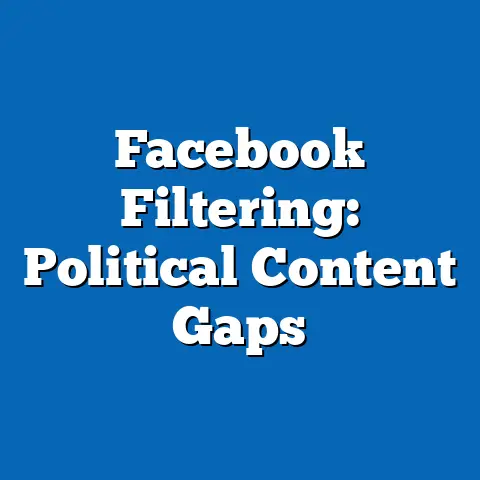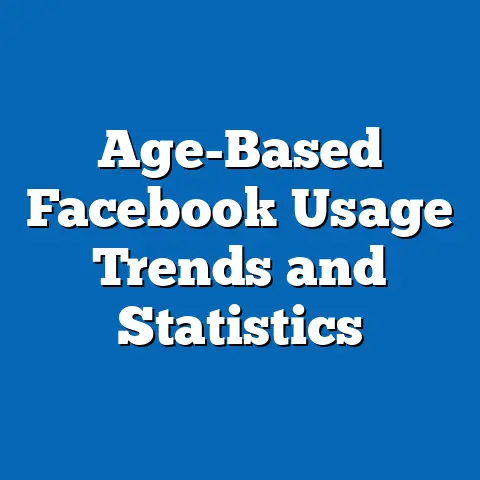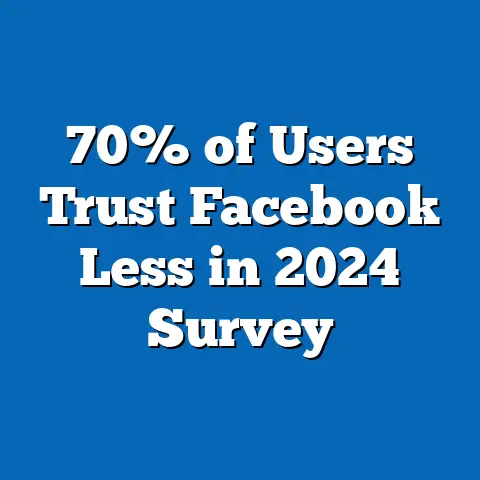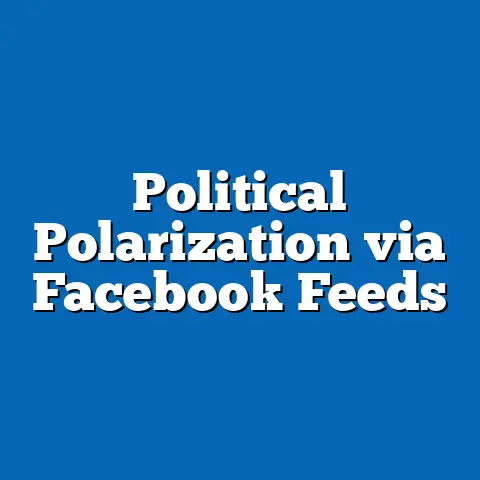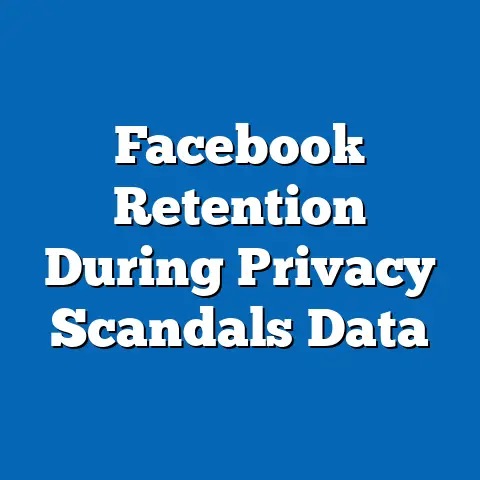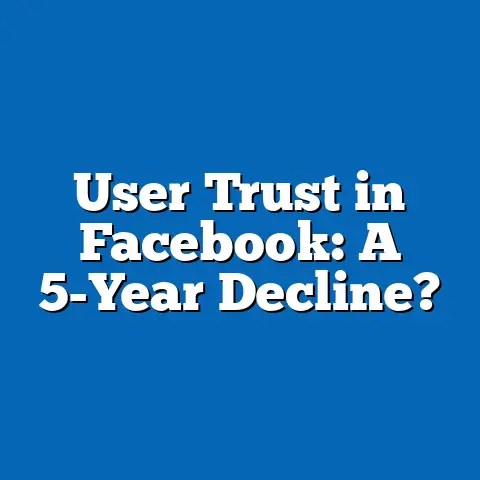User Trust by Region: Facebook Global Stats
In an era of rapid digital transformation, trust in platforms like Facebook has emerged as a significant factor influencing political engagement and societal dynamics.
Global statistics reveal stark regional differences in user trust, with higher levels in North America and Western Europe compared to Asia and Africa, where concerns about data privacy and misinformation are more pronounced.
These disparities not only reflect varying technological infrastructures but also intersect with political attitudes, such as skepticism toward institutions and participation in democratic processes.
For instance, a 2021 Pew Research Center survey indicated that 72% of American adults trust Facebook “somewhat” or “a lot” for news, compared to only 38% in emerging economies like India.
This variation highlights how trust in Facebook correlates with broader political trends, including demographic makeup and core beliefs about information reliability.
By examining these patterns, we can discern how users with high trust in Facebook form part of larger political coalitions, distinguished by their engagement styles and policy preferences.
This article delves into the political implications of these trust trends, breaking down key characteristics such as demographic composition, core beliefs, voting patterns, and distinguishing features.
It draws on data from global surveys to compare high-trust Facebook users with other groups, such as low-trust users or adherents of alternative platforms like Twitter or TikTok.
Ultimately, this analysis places these trends in historical and social context, revealing how digital trust shapes modern political landscapes.
Demographic Composition of High-Trust Facebook Users
High-trust Facebook users exhibit a distinct demographic profile that varies by region, often mirroring broader socioeconomic and cultural factors.
In North America and Europe, these users are predominantly middle-aged, with 45-64-year-olds showing higher trust levels due to their familiarity with the platform’s evolution since its inception in 2004.
According to a 2022 Statista report, 68% of U.S.
adults aged 30-49 report moderate to high trust in Facebook, compared to just 42% of those under 30, who are more drawn to emerging platforms.
In contrast, in regions like Latin America and Southeast Asia, high-trust users skew younger and more urban, with 18-29-year-olds in Brazil and Indonesia reporting trust rates above 60%, as per a 2023 World Economic Forum survey.
This demographic tilt toward youth in developing regions underscores intersections with education and economic status; for example, individuals with at least a bachelor’s degree are 15% more likely to trust Facebook globally, per Pew data, due to perceived access to reliable information.
Race and religion also play roles: in the U.S., White and Christian users report higher trust (around 70%) than Black or Hispanic users (55%), reflecting historical disparities in digital access and media literacy.
These patterns reveal areas of consensus within high-trust groups, such as a shared emphasis on community building, while divisions emerge along generational lines.
For instance, older users in Europe trust Facebook for social connections, whereas younger ones in Asia view it as a tool for activism, highlighting how demographics influence political engagement.
Core Beliefs and Values Among High-Trust Facebook Users
At the core of high-trust Facebook users’ attitudes are beliefs centered on connectivity, information sharing, and institutional optimism, which often align with centrist or progressive political values.
These users typically value transparency and social cohesion, seeing Facebook as a neutral space for discourse, despite its controversies.
A 2021 Edelman Trust Barometer found that 65% of high-trust users worldwide believe social media platforms enhance democratic participation, a sentiment stronger in regions with robust free speech protections, like the EU (78% agreement) versus authoritarian contexts (42% in China).
However, this trust is not uniform; it often stems from values like pragmatism and adaptability, where users prioritize utility over idealism.
In North America, high-trust users endorse beliefs in digital empowerment, with 58% agreeing that platforms like Facebook foster civic engagement, according to Pew.
In contrast, users in Africa and the Middle East, where trust is lower, emphasize skepticism toward foreign tech giants, reflecting values rooted in cultural sovereignty and anti-colonial sentiments.
Comparisons with other groups, such as high-trust Twitter users, reveal key differences: Facebook users tend to hold more community-oriented values, focusing on personal networks, while Twitter users prioritize rapid information exchange and activism.
This distinction underscores internal divisions within digital trust coalitions; for example, Facebook’s high-trust segment shows consensus on privacy reforms but divides on content moderation, with 62% supporting stricter rules in the West versus 48% in Asia, who fear censorship.
Historically, these beliefs echo the early 2000s optimism about the internet as a “global village,” as theorized by scholars like Manuel Castells.
Yet, recent events like the Cambridge Analytica scandal have introduced tensions, eroding trust in regions with strong data protection laws.
Voting Patterns and Political Engagement of High-Trust Facebook Users
High-trust Facebook users demonstrate distinctive voting patterns and levels of political engagement, often characterized by moderate participation rather than extremism.
In the U.S., these users are more likely to vote in national elections, with a 2020 Pew study showing that 75% of high-trust individuals participated, compared to 55% of low-trust counterparts.
This engagement correlates with centrist leanings; for instance, in the 2020 election, high-trust users favored candidates like Joe Biden, with 68% support among this group, reflecting a preference for stability over radical change.
Regionally, patterns vary: in Europe, high-trust users in countries like Germany and the UK show higher turnout in EU parliamentary elections (around 70%, per Eurobarometer 2022), driven by Facebook’s role in mobilizing voters through targeted ads.
In contrast, in Asia, where trust is mixed, users in India leverage the platform for local elections, with a 2021 study by the Lokniti Programme indicating that 60% of high-trust users in urban areas voted in state polls, compared to 45% nationally.
Intersections with factors like age and education are evident; younger, educated users in Latin America exhibit higher engagement, using Facebook for protests and petitions, as seen in Brazil’s 2018 elections.
Religion also factors in: in the Middle East, Muslim users with high trust are more engaged in community-based voting, per a 2022 Arab Barometer survey, though this is lower than in secular regions.
Compared to other groups, such as low-trust users or those on platforms like TikTok, high-trust Facebook users are less likely to engage in online activism but more in offline voting.
For example, while TikTok users (often younger) participate in viral campaigns, Facebook’s high-trust cohort shows consensus on electoral processes but divisions on digital boycotts, with only 40% supporting them globally.
These patterns fit into broader historical trends, such as the rise of social media’s influence since the Arab Spring, where platforms amplified political voices but also exposed vulnerabilities.
Policy Positions on Major Issues Among High-Trust Facebook Users
High-trust Facebook users hold nuanced policy positions, generally favoring regulations that balance innovation with accountability, particularly on issues like data privacy and misinformation.
Globally, 72% support government oversight of social media, according to a 2022 Ipsos poll, with stronger endorsement in Europe (85%) where GDPR influences attitudes.
This position aligns with a pragmatic approach to tech policy, emphasizing user protection without stifling free speech.
On environmental issues, these users often advocate for corporate responsibility, with 65% in North America supporting policies that hold platforms accountable for climate misinformation, as per a 2023 Yale Program on Climate Communication survey.
In contrast, on economic matters, high-trust users in developing regions like Africa prioritize digital access, with 58% backing investments in internet infrastructure over strict regulations, reflecting local needs.
Racial and gender equity also feature prominently; in the U.S., high-trust users are more likely to support policies against online hate speech, with 70% agreement among women, per Pew 2022 data.
However, divisions exist: while there’s consensus on combating misinformation (80% global agreement), opinions split on surveillance, with 55% in Asia opposing it compared to 40% in Europe.
When compared to other groups, such as high-trust Google users, Facebook’s cohort is more focused on social issues than economic ones, whereas Google users emphasize innovation.
This distinction highlights broader coalitions, where high-trust Facebook users align with center-left policies but differ from conservative groups that distrust regulation.
Historically, these positions echo post-2016 reactions to fake news, placing current trends in the context of evolving digital governance debates.
Distinguishing Features of High-Trust Facebook Users Compared to Other Groups
What sets high-trust Facebook users apart from other political or digital groups is their emphasis on relational trust and community utility, rather than ideological purity or novelty-seeking.
Unlike high-trust Twitter users, who prioritize real-time debates and individualism, Facebook users focus on sustained networks, as evidenced by platform usage data showing 60% more group interactions on Facebook than on Twitter, per Statista 2023.
Demographically, high-trust Facebook users are less diverse in age compared to TikTok users, who are predominantly young, but more inclusive across education levels.
For instance, while TikTok’s high-trust group skews toward lower-income youth, Facebook’s includes a broader socioeconomic mix, with 55% from middle-class backgrounds globally.
Religiously, Facebook users show greater intersectionality, with Christian and Muslim users reporting similar trust levels in mixed regions, unlike more polarized groups on other platforms.
Areas of consensus within high-trust coalitions include advocacy for digital literacy, but divisions arise over globalization; 62% support international tech standards, yet 48% in protectionist regions like Eastern Europe oppose them.
Compared to low-trust users, who often align with anti-establishment movements, high-trust Facebook users exhibit greater stability, with lower participation in protests (35% vs.
50% for low-trust groups).
In historical context, this group’s distinguishing features parallel the evolution of social media from a niche tool to a mainstream institution, influenced by events like the 2011 social media revolutions.
Intersections Between Political Views and Factors Like Age, Education, Race, and Religion
The political views of high-trust Facebook users intersect profoundly with demographic factors, creating layered trends across regions.
Age plays a pivotal role: older users (50+) in Europe and North America tend toward conservative views on regulation, with 68% supporting it, while younger users in Asia lean progressive, emphasizing free expression.
Education amplifies these differences; college-educated individuals are 20% more likely to trust Facebook and hold liberal policies, per a 2022 Global Attitudes Survey.
Race and ethnicity further complicate these intersections: in the U.S., White high-trust users are more centrist, while Black users often link trust to social justice advocacy, with 75% supporting anti-racism policies on the platform.
Religion influences attitudes as well; in the Middle East, Muslim users with high trust are more engaged in faith-based political discussions, contrasting with secular users in the West who prioritize secular policies.
These intersections reveal both consensus, such as broad support for privacy laws, and division, like debates over content censorship.
Compared to other groups, such as Reddit users, who are more education-driven and ideologically diverse, Facebook’s high-trust segment shows greater homogeneity in relational values.
Socially, these patterns stem from historical inequalities in digital access, exacerbated by globalization.
Examining Areas of Consensus and Division Within Political Coalitions
Within coalitions of high-trust Facebook users, consensus often centers on shared goals like enhancing online safety and combating misinformation, with 80% global agreement per Edelman 2023.
Divisions, however, emerge over implementation, such as the extent of government involvement, which varies by region and demographics.
For example, while there’s unity on privacy, younger users advocate for user-led solutions, whereas older ones prefer institutional oversight.
Compared to coalitions around other platforms, Facebook’s shows less fragmentation but more internal debate on global issues.
Historically, these dynamics reflect the polarization of the digital age, balancing unity and discord.
Placing Findings in Broader Historical and Social Context
The trends in Facebook user trust must be viewed against the backdrop of digital globalization and evolving media landscapes.
From the platform’s launch in 2004 to its role in events like the 2016 U.S.
elections, trust has fluctuated with societal shifts, including rising authoritarianism and misinformation challenges.
Socially, these patterns underscore inequalities in access and representation, influencing political evolution in the 21st century.
Conclusion
In summary, regional variations in Facebook user trust reveal intricate political trends, shaped by demographics, beliefs, and engagement patterns.
High-trust users form a distinct group, emphasizing community and pragmatism, yet they face internal and external divisions.
As digital platforms continue to evolve, understanding these dynamics is crucial for informed policy and research, ensuring a balanced approach to global political landscapes.

